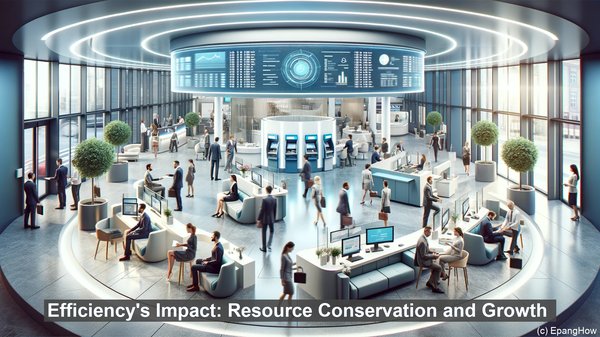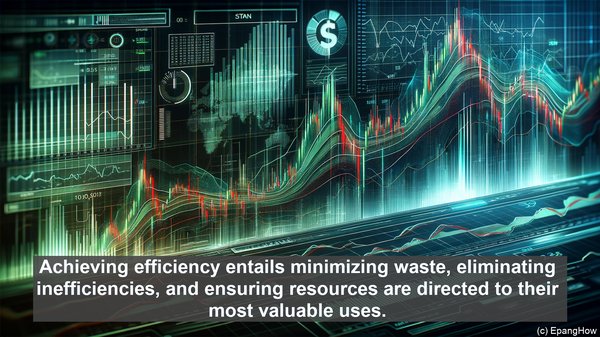Introduction: The Bedrock of Economic Analysis
Hello and welcome! Economics, as a discipline, seeks to understand the allocation of scarce resources to satisfy unlimited wants. In this pursuit, the concepts of scarcity and efficiency form the bedrock of economic analysis. While scarcity refers to the limited availability of resources, efficiency focuses on maximizing output with the given resources. Let’s dive deeper into these concepts.
Scarcity: The Fundamental Economic Problem
Scarcity, in economic terms, implies that resources are finite, while human wants and needs are infinite. This inherent imbalance creates a fundamental economic problem. Whether it’s natural resources, labor, or capital, all resources are limited. This scarcity necessitates choices, as not all wants can be fulfilled. For instance, a government may have to choose between investing in healthcare or infrastructure due to limited funds. Scarcity, thus, underpins the concept of opportunity cost, where choosing one option means forgoing the benefits of the next best alternative.
Efficiency: Maximizing Resource Utilization
Efficiency, on the other hand, is concerned with utilizing resources optimally to achieve desired outcomes. It encompasses both productivity and allocation. Productive efficiency refers to producing goods and services at the lowest possible cost, ensuring resource optimization. Allocative efficiency, on the other hand, focuses on distributing resources in a manner that maximizes societal welfare. Achieving efficiency entails minimizing waste, eliminating inefficiencies, and ensuring resources are directed to their most valuable uses.
The Interplay: Scarcity and Efficiency
Scarcity and efficiency are intertwined in economic decision-making. The presence of scarcity necessitates the pursuit of efficiency. In fact, one could argue that efficiency is the antidote to scarcity. By maximizing resource utilization, efficiency mitigates the impact of scarcity. Conversely, inefficiencies exacerbate the effects of scarcity, leading to suboptimal outcomes. For instance, in a water-scarce region, an efficient irrigation system can ensure judicious water use, while an inefficient system may lead to water wastage and reduced agricultural output.

Trade-offs and Priorities: Scarcity in Action
Scarcity forces individuals, organizations, and governments to make choices. These choices involve trade-offs, where selecting one option means sacrificing another. The decision-making process is guided by factors like cost, benefit, and priority. For instance, a company with limited funds may have to choose between investing in research and development or marketing. Similarly, a government may have to prioritize between defense spending and social welfare. These choices, influenced by scarcity, have far-reaching implications.
Efficiency’s Impact: Resource Conservation and Growth
Efficiency is not just about immediate gains; it also has long-term implications. By conserving resources and minimizing waste, efficiency ensures their availability for future generations. Moreover, efficiency is closely linked to economic growth. A more efficient economy can produce more output with the same resources, leading to increased prosperity. This growth, however, must be sustainable, considering the finite nature of resources and the need to preserve the environment.

